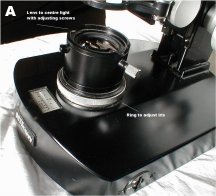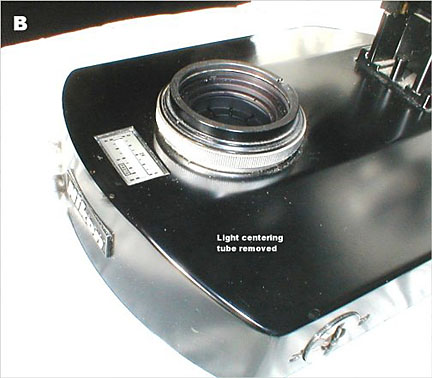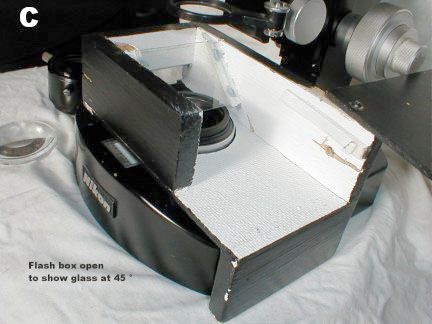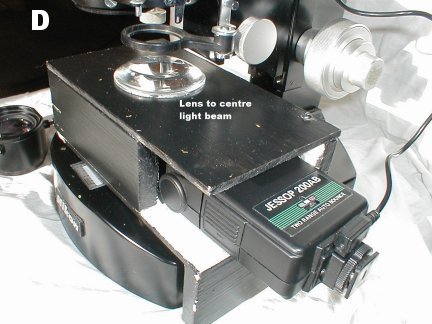I hope the photographs are self explanatory but a description follows:- ‘A’ shows the base of the Nikon with the tube through which the light beam passes in position as normal. Just below the bottom of the tube, built into the base, is an iris controlled by the knurled ring. At the top of the tube is a condenser lens adjustable to centre the beam.

‘B’ shows the tube removed and the opening with the iris. ‘C’ shows the flash box in position with the top open so the piece of thin glass fixed to wood strips at an angle of 45° can be seen; the light beam passes through the angled glass for normal viewing. The angled glass will deflect the light from the flash up through the beam centring lens.


‘D’ shows the box closed with a spare beam centring lens in position which has to adjusted by hand (the lens on the tube is adjusted by screws). The flashgun is also in position.

When a flashgun is used, best results are obtained if the flash is as near as possible coming from the same light source as for normal viewing. Set-ups using an external source of light are sometimes made so that the main light can be swung aside and the flash gun moved into its place, or the main lamp can be fitted into a tube with the flashgun mounted behind it so the flash fires around the lamp.
The idea of using a piece of glass at an angle of 45° to deflect light is not new. See the article on Incident Lighting and the Lieberkühn Speculum. This article is just to show what is possible.
All comments to the author Bill
Ells are welcomed.